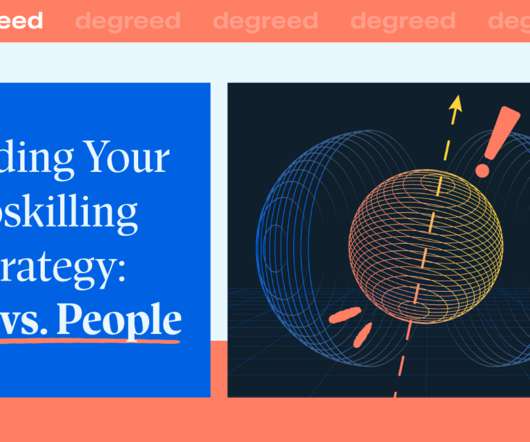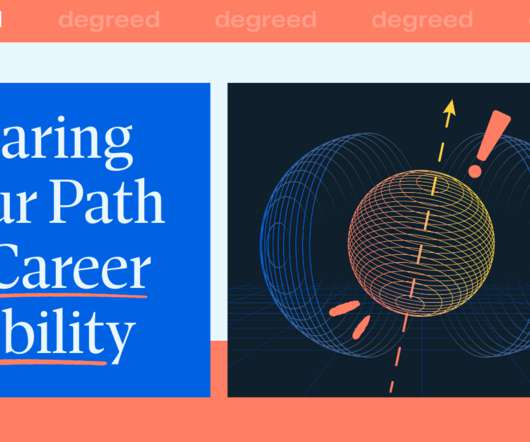Building Your Upskilling Strategy: Data vs. People
Degreed
JUNE 22, 2021
World Economic Forum, based on the McKinsey Global Institute, looks at five categories of skills: physical and manual skills, basic cognitive skills, higher cognitive skills, social and emotional skills, and technological skills. Those skills were then matched to qualified workers, and a workforce mobility solution emerged.

















Let's personalize your content